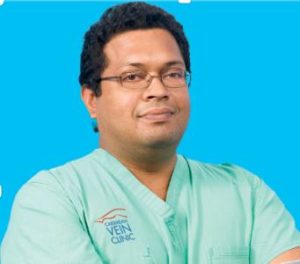- Home
- Doctors in Port%20of%20spain
- Vascular Surgery
Consult Vascular Surgery Online in port%20of%20spain | Medicas
- Filters 0
- Sort
Filters
Fee
Gender
Experience
Languages Spoken
0 Trusted Best Vascular-surgery Doctors available in Port%20of%20spain, Jamaica
 Book
Appointments Quickly with Verified Doctors
Book
Appointments Quickly with Verified Doctors
| Name | Speciality | Exp | Fee |
|---|---|---|---|
| Dr. Raj Kapoor () | Pulmonology | 50 Y | J$ 15,205.54 |
| Dr Raj Kapoor (MBBS, MD, ECFMG, ABSM, FCCP,) | Pulmonology | 50 Y | J$ 15,205.54 |
| Dr. Cyril Inalsingh () | General practitioner | 49 Y | J$ 5,879.34 |
| Dr David Toby (MBBS,FRCS) | Orthopedics | 45 Y | J$ 11,758.68 |
| Dr E Monica Davis (MBBS,MPhil) | Physiology | 42 Y | J$ 7,055.21 |
| Dr Rodney Benjamin (MBBS) | Anesthesiology | 41 Y | J$ 5,879.34 |
| Dr Manohar Ahuja (M.D., M.B.B.S., M.R.C.P.(UK), Nephrology & Internal Medicine) | Nephrology | 40 Y | J$ 12,804.67 |
| Dr Prakashbhan Persad (MBBS, DGO, FRCOG, MRCPI, MFFP, MSc (Fetal Medicine)) | Women health | 37 Y | J$ 12,934.55 |
| Dr Prakashbhan Persad (MBBS, DGO, FRCOG, MRCPI, MFFP, MSc (Fetal Medicine)) | Obstetrics gynecology | 37 Y | J$ 12,934.55 |
| Dr Stephen Ramroop (M.B.B.S, F.R.C.S, MBA) | Orthopedics | 35 Y | J$ 9,406.94 |
Vascular Surgery in Jamaica
Vascular diseases can significantly impact the quality of life, especially when left untreated. These conditions affect the blood vessels, leading to serious complications such as reduced blood flow, pain, and even organ damage. Vascular surgery treatment is crucial in managing and resolving these issues, offering relief and restoring health.
At Medicas, we offer comprehensive solutions for all vascular problems and follow-up care. Our online doctor consultation and tailored health checkup packages ensure accessibility and convenience for patients.
What is Vascular Disease?
Vascular diseases involve conditions affecting the arteries, veins, or lymphatic vessels, often leading to compromised blood flow. Common vascular conditions include:
- Aneurysms: Bulging in blood vessel walls, which can rupture if untreated.
- Peripheral Artery Disease (PAD): Blocked arteries reducing blood flow to limbs.
- Critical Limb Ischemia: A severe form of PAD that causes chronic pain, sores, and even tissue death.
- Varicose Veins: Swollen, twisted veins that cause discomfort and aesthetic concerns.
- Deep Vein Thrombosis (DVT): Formation of a blood clot in a deep vein, usually in the legs, which can lead to serious complications if the clot travels to the lungs.
- Chronic Venous Insufficiency occurs when the veins cannot pump sufficient blood back to the heart, causing swelling, pain, and skin changes in the legs.
- Raynaud’s Disease: A condition that causes some areas of the body, such as fingers and toes, to feel numb and cold in response to cold temperatures or stress.
- Carotid Artery Disease: Narrowing of the carotid arteries in the neck, which can reduce blood flow to the brain and increase the risk of stroke.
- Buerger’s Disease: A rare disease of the arteries and veins in the arms and legs, leading to blockages, pain, and tissue damage.
Early diagnosis and timely vascular surgery treatment can prevent these conditions from escalating.
Who is at Risk for Vascular Problems?
While anyone can develop vascular issues, certain factors increase the likelihood, including:
- Age: As people age, the risk of vascular diseases increases.
- Obesity: Being overweight causes blood vessels to stretch, leading to various vascular conditions.
- Family History: A genetic predisposition can make some individuals more susceptible.
- Lifestyle: Smoking, lack of exercise, and poor diet can damage blood vessels.
- Chronic Conditions: Diabetes, hypertension, and high cholesterol increase the risk.
- Previous Medical History: A history of heart disease or stroke also elevates the risk.
- Injuries or Trauma: Physical damage to blood vessels may lead to complications requiring open vascular surgery.
- Alcohol Consumption: Excessive drinking can lead to high blood pressure and other vascular complications.
- Stress: Chronic stress can contribute to vascular problems by increasing blood pressure and damaging blood vessels.
- Occupational Hazards: Jobs involving prolonged sitting or standing can increase the risk of developing varicose veins and other vascular issues.
Understanding these risk factors can help in the early detection and management of vascular diseases through preventive measures and timely vascular surgery treatment.
When is Surgery Necessary for Vascular Problems?
Surgery becomes essential when conservative treatments, lifestyle changes and medications fail to address the problem or when the condition poses an immediate risk to life. Scenarios that often require vascular surgery treatment include:
- Persistent symptoms despite medication and lifestyle changes.
- Severe cases of critical limb ischemia where limb loss is imminent.
- Aneurysms at risk of rupture.
- Blood clots cause life-threatening complications like strokes or embolisms.
- Varicose veins cause pain, swelling, or ulceration.
A vascular surgeon will evaluate your condition to determine whether surgical intervention, such as limb salvage surgery, is the best option.
What Types of Surgeries Are Available to Treat Vascular Diseases?
Vascular surgeries can be broadly categorised into minimally invasive procedures and traditional open surgeries:
Minimally Invasive Procedures
Minimally invasive procedures involve smaller incisions, which lead to quicker recovery and fewer complications. They are often preferred for their efficiency and reduced patient discomfort.
- Angioplasty and Stenting: Widening narrowed arteries using a balloon or stent.
- Endovascular Aneurysm Repair (EVAR): Treating aneurysms without a large incision.
- Thrombolysis: Using medication to dissolve blood clots that are blocking blood vessels.
- Atherectomy: Removing plaque from the arteries using a catheter with a sharp blade or laser.
Open Vascular Surgery
Open vascular surgery involves traditional surgical techniques, with larger incisions, to directly access and repair blood vessels. It is necessary for more complex or severe conditions.
- Bypass Surgery: Creating a new pathway for blood flow around a blocked artery.
- Aneurysm Repair: Replacing or reinforcing a damaged vessel wall.
- Carotid Endarterectomy: Removing plaque build-up in the carotid arteries to prevent strokes.
- Femoral Endarterectomy: Removing plaque from the femoral artery to restore blood flow to the legs.
Limb Salvage Surgery
Used to prevent amputation in severe cases of critical limb ischemia, this approach includes revascularisation or tissue reconstruction to restore limb function.
Hybrid Procedures
Sometimes, minimally invasive and open surgical techniques may be used to achieve the best outcomes. These hybrid procedures offer the benefits of both approaches and can be tailored to the patient’s specific needs.
Selecting the right procedure depends on your condition and overall health. At Medicas, we provide expert evaluations and tailor treatment plans to ensure the best possible outcomes for our patients through advanced vascular surgery treatment.
What Are the Risks of Vascular Surgery?
While vascular surgeries are often life-saving, they do carry certain risks. Common complications include:
- Blood Clots
- Infections at the surgical site
- Bleeding during or after surgery
- Nerve Damage in the affected area.
- Reaction to Anesthesia, especially in major surgeries.
- Damage to Blood Vessels and surrounding tissues.
- Recurrence of the condition if underlying causes remain unaddressed.
- Scarring at the incision sites.
Discuss these risks with your surgeon during your online doctor consultation to understand what to expect and how to minimise complications.
What is Recovery and Follow-Up Like After Vascular Surgery?
Post-surgery recovery depends on the type of procedure performed and your overall health. Key aspects include:
- Hospital Stay: Minimally invasive procedures often require shorter stays than open vascular surgery.
- Rehabilitation: Physical therapy may be recommended to help patients regain strength and mobility
- Monitoring: Regular monitoring of the surgical site to check for signs of infection or other complications.
- Medications: Blood thinners and pain management are typically prescribed.
- Follow-Up: Regular check-ups through online doctor appointments or in-person visits to monitor recovery progress and address any concerns.
- Lifestyle Modifications: Patients may need to make lifestyle changes, such as adopting a healthy diet, quitting smoking, and engaging in regular exercise.
Patients who undergo procedures like limb salvage surgery often benefit from long-term care plans that include routine vascular assessments.
How is Medicas Unique in Surgery for Vascular Problems?
At Medicas, we strive to provide world-class vascular care tailored to your needs. Here’s what sets us apart:
- Experienced Specialists: Our team includes experts skilled in managing complex cases, such as critical limb ischemia and limb salvage surgery.
- Advanced Facilities: Equipped with the latest minimally invasive and open vascular surgery technology.
- Accessibility: Options for online doctor appointments and consultations ensure care is always within reach.
- Comprehensive Packages: Our health checkup packages include screenings for vascular diseases, enabling early detection and intervention.
- Affordable Healthcare: We provide high-quality vascular surgery treatment at competitive prices, ensuring that financial constraints do not hinder access to care.
Your health is our priority, and we ensure every patient receives personalised attention and expert care.
Take the Next Step Towards Better Vascular Health with Medicas
If you’re dealing with vascular problems, don’t wait for the symptoms to worsen. Schedule an online doctor appointment with Medicas today to explore your options for vascular surgery treatment. From advanced diagnostics to tailored follow-up care, we’re here to support your journey to recovery.
FAQ’s about Vascular Surgery
Vascular Surgery is a medical specialty that focuses on the diagnosis and treatment of conditions affecting the blood vessels, such as arteries and veins.
Yes, Medicas offers online consultations with experienced Vascular Surgeons who can provide guidance and answer your questions regarding vascular-related concerns.
A Vascular Surgeon can diagnose and treat various vascular conditions, including arterial diseases, venous disorders, and lymphatic disorders.
Vascular Surgeons are skilled in performing procedures such as angioplasty, stenting, bypass surgery, endovascular repair, and vein treatments.
A Vascular Surgeon can assess your symptoms, conduct diagnostic tests, provide treatment options, and perform surgical interventions when necessary to improve blood flow and manage vascular conditions.
Walking after vascular leg surgery is encouraged to promote healing and circulation. However, the extent and timing will depend on the specific procedure performed and your overall health.
Some frequently performed procedures include bypass surgery,.angioplasty, aneurysm repair, carotid endarterectomy.
You can expect some pain after vascular surgery, but it’s typically managed with medication.
The complexity of vascular surgery varies. Some procedures are minimally invasive, while others are considered major.
Vascular surgery involves the blood vessels, which can be anywhere in the body, including arteries and veins in the legs, arms, abdomen, and neck.
Vascular surgery is necessary when there are severe blockages, aneurysms, or other vascular conditions that cannot be managed with medication or less invasive treatments.
The most common complication of vascular surgery is infection at the surgical site. Other potential complications include blood clots, bleeding, and issues related to anesthesia.
Top Specialities In Jamaica
- Cardiologists in Jamaica |
- Dentists in Jamaica |
- Dermatologists in Jamaica |
- Gynecologist/Obstetricians in Jamaica |
- General Practitioners in Jamaica |
- Orthopedists in Jamaica |
- Oncologists in Jamaica |
- Pediatricians in Jamaica |
- Diabetologists in Jamaica |
- Psychiatrists in Jamaica
Top Treatments in Jamaica
- Diabetes Treatment in Jamaica |
- Arthritis Treatment in Jamaica |
- PCOD Treatment in Jamaica |
- Irregular Periods Treatment in Jamaica |
- Male Sexual Problems Treatment in Jamaica |
- Infertility Treatment in Jamaica |
- Sciatica Treatment in Jamaica |
- Gastric Problem Treatment in Jamaica |
- Lower Backpain Treatment in Jamaica |
- Knee Pain Treatment in Jamaica
 Medical Specialties
Medical Specialties




